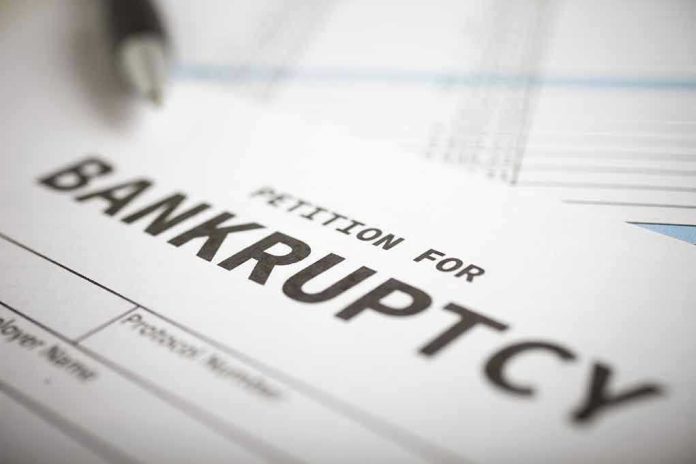
One of the most iconic names in American home technology is teetering on the edge of extinction, a victim of failed deals, fierce competition, and a financial nosedive that even its legendary robots can’t clean up.
Story Snapshot
- iRobot, creator of the Roomba, faces imminent bankruptcy after the collapse of Amazon’s $1.4 billion acquisition.
- Cash reserves have dwindled to just $24.8 million, with no new buyers or funding in sight.
- The company’s fall highlights the brutal realities of the consumer robotics industry and the risks of regulatory intervention.
- Employees, shareholders, and consumers now face uncertainty as iRobot’s future hangs in the balance.
The Rise and Unraveling of a Robotic Pioneer
In 1990, three MIT roboticists founded iRobot with a vision so bold it bordered on science fiction: practical robots helping ordinary people. By 2002, their Roomba robotic vacuum was revolutionizing household chores, selling over 50 million units and making iRobot synonymous with home robotics. But glory doesn’t guarantee survival. The company’s laser focus on vacuum robots, while initially lucrative, left it exposed to cutthroat competition from cheaper Asian brands and a market quick to commoditize innovation. The once unassailable leader found itself in a race it could no longer control.
Amazon’s 2022 announcement of a $1.4 billion buyout appeared to offer salvation. The deal would have embedded iRobot at the heart of the smart home revolution, leveraging Amazon’s reach and resources. But regulators, wary of Big Tech swallowing yet another sector, blocked the acquisition in early 2024. Instead of a lifeline, iRobot was left adrift, burdened by the stigma of a failed deal and a rapidly eroding balance sheet.
Financial Crisis and Dwindling Options
By November 2025, iRobot’s cash reserves had shriveled to $24.8 million, a figure that would have seemed unthinkable during its heyday. Revenues dropped 25% year-over-year, and every attempt to secure a buyer or investor fizzled. The company’s last potential acquirer walked away in October 2025, offering a price so low it was described as “significantly lower” than even the battered trading price of iRobot stock. Lenders, holding the keys with loan covenants and temporary waivers, extended a crucial deadline to December 1 but show little appetite for patience without a radical turnaround. The board and CEO Gary Cohen, under intense pressure, warn openly in regulatory filings that bankruptcy protection may be unavoidable if new capital doesn’t arrive soon.
The maker of the Roomba is running out of cash and options. After its failed Amazon deal, iRobot could face bankruptcy. https://t.co/E0oMF1h0cn
— Insider Tech (@TechInsider) November 6, 2025
Management blames a perfect storm of market headwinds, production delays, and shipping disruptions for the freefall, but these are only part of the story. The company’s reliance on a single product line and failure to adapt to new waves of competition exposed fundamental weaknesses that no amount of short-term cost cutting could fix. Employees now face the prospect of mass layoffs, and consumers who relied on Roomba’s once-reliable service must grapple with the possibility of orphaned products and a vanishing brand.
Broader Implications for Robotics and Regulation
iRobot’s crisis sends shockwaves across the consumer robotics industry. Its fall echoes the fates of other tech pioneers—BlackBerry, Palm—who dominated early, only to stumble when innovation became commoditized and rivals raced ahead. The failed Amazon acquisition, blocked by regulatory scrutiny, raises profound questions about whether antitrust policies intended to protect competition can inadvertently doom struggling innovators. Some analysts argue that iRobot’s demise was inevitable without a strategic pivot, while others contend that regulatory intervention deprived the market of a chance to evolve more naturally.
Competitors like Roborock and Ecovacs stand poised to seize market share, while investors and would-be acquirers now approach consumer robotics with a new wariness. The chilling effect on innovation and deal-making could linger, as companies and regulators alike struggle to balance competition with the lifelines that big partnerships sometimes provide.
What Happens Next: Unanswered Questions and Possible Futures
With no new funding secured and the loan waiver’s expiration looming, iRobot’s fate may be decided within weeks. Bankruptcy could mean asset liquidation and the end of a household name, or it could open the door for a competitor to acquire its technology and intellectual property at a bargain. Employees, shareholders, and retail partners all stand to lose, but the broader lesson may be one of humility for tech’s disruptors: today’s icon can become tomorrow’s cautionary tale.
As the dust settles, the world will watch to see whether the Roomba’s creators can script a last-minute escape—or whether the robots that once promised to save us time will themselves run out of time.







